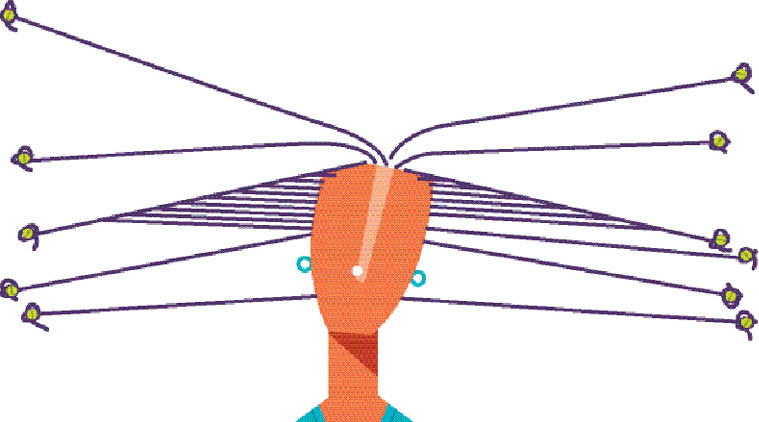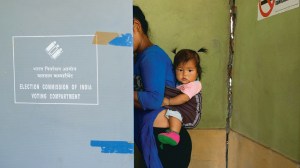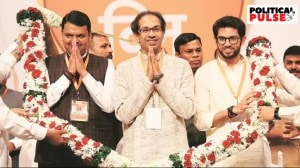- India
- International
A voice, under 35: No country for free women
No girl in India is born free. In many cases, she is not even free to be born
 Freedom in the true sense of the word means freedom of choice and opportunity. (Illustration by C R Sasikumar)
Freedom in the true sense of the word means freedom of choice and opportunity. (Illustration by C R Sasikumar)
One of 800 million: India has 800 million young men and women under the age of 35. Beginning today, a regular column in The Indian Express gives them a voice
While we celebrate 68 years of Independence, it is vital to truly understand what freedom means. A century ago, it meant
doing away with British rule, an empire that made us unequals in our own country; where we were discriminated against on
the basis of our skin colour and the place we were born. We had no rights against our masters and no recourse to get them. Plainly put, we weren’t free; free to be ourselves and live our lives the way we wanted. Today, our Constitution, the most sacred book of modern India, guarantees us a host of freedoms. Freedom to move about, speak, live anywhere, enter any place, work in whatever profession we want, think what we want — all in all, the freedom to be who we want to be. No more are we unequals in our own motherland. Today, we hold our heads up high and walk with pride, rejoicing in our still-new liberty.
Freedom in the true sense of the word means freedom of choice and opportunity. It means everyone having access to the same resources and options and then having the freedom to choose among them. While a developing country like ours cannot promise the same opportunities to everyone, it can at least offer them to people of similar potential. Institutions like the IITs, NITs, IIMs, state medical colleges, etc, are manifestations of this free India, where students of every class, creed, colour or background can be admitted based on their potential. Today, government hospitals stand as the guarantors of freedom in health and medical care, government schools of freedom in primary education, and government banks and institutions give loans to poor farmers and entrepreneurs. While, on the one hand, our depleting forest resources and increasingly polluted air are taking away our freedom to live in a healthy environment, on the other hand, Parliament is arming our government machinery with laws and resources to protect this freedom. So, yes, today we are free.
But how far is that true? Are we really equals in all senses of the word? Are we all really free? Can we all move about when and where we want? Pursue any profession that we want? It is true that the establishment has no right to stop us and we can challenge it in the courts, which have been the protectors of our liberty, if it does. But what about the inequality inherent in our social fabric? What about the inequality every girl faces from the minute she takes her first breath? What about freedom from prejudice and social stratification?
No girl in India is born free. In many cases, she is not even free to be born. If she is free in her house, then she is not free when she steps out of it. She cannot wear the clothes she chooses or go where she wants, when she wants. She is not free to feel safe in her own country. Men can roam the streets in the dead of night, but she has to be locked inside for fear for her safety. She is not free to pursue the career she wants because her family dictates what is most suitable given their plans for her. If she earns, she is not free to spend her money as she wants. Prior to marriage the terms are dictated by her family and after that, by her husband’s family. She is not free to marry who she wants because her marriage is not about her happiness, it is about the image of her family in society. She is not even free to decide if she wants to get married or not, let alone to choose when she is ready.
She is not free to speak her mind or have opinions. If she has opinions, then she can’t express or act on them, for society sits in judgement over her words and actions and decides what is right for her. She is the one asked to stay home when the household has enough resources to only educate one child. Professionally, she has to work twice as hard to have access to the same opportunities as her male colleagues. If the family wants children, it is her career that is sacrificed. Bringing up a child is somehow always primarily her responsibility. There is hardly any equality in terms of household responsibilities. In a professional context, it is always the woman who is questioned as to how she will handle her family life when applying for a job. From the minute she is born, a woman faces some sort of discrimination.

The saddest part of this discrimination and oppression is that many women today have so internalised this that they refuse
to recognise it or realise it even exists. They have justified this treatment as natural. They do not protest when it happens to them. They still feel, deep down, that men are more capable. In which case, they become satisfied with taking a backseat or expect second place from the start. It is time each member of society recognised that capability is individual, and cannot be judged in terms of gender. It is up to us to explore our boundaries.
As we celebrate this 68th year of our Independence, we need to look towards a free society for each of our citizens. If nearly half of our population has been living in such oppression, how can we call ourselves free? We need to create a nation free from fear, oppression, discrimination and prejudice. A free India where every Indian has the same choices and opportunities as the rest is the only India that can signify the pinnacle of development we desire.
The writer ranked first in this year’s UPSC civil services examination
EXPRESS OPINION
More Explained
Apr 20: Latest News
- 01
- 02
- 03
- 04
- 05









































